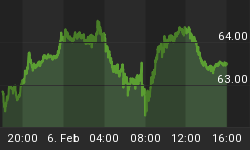The news that China cut its currency link to the U.S. Dollar came and went with little media reaction. Headlines and live feeds out of London dominated the news Thursday, even after it was discovered that, fortunately, the subway and bus blasts didn't cause a single injury. The rest of the day's mainstream news focused on Iraq, Arnold Schwarzenegger, the Supreme Court and Sudanese diplomacy. You would at least figure that CNN.com would mention the China news as its number one business headline but, alas, what do we see? "Google Profit Soars; Shares Plummet"
While most Americans would rather learn about the latest plot on Desperate Housewives or the Tour de France (we have nothing against either), you can bet that U.S. Government officials were paying attention when the world's most populous country announced that they were not going to prop up the Dollar anymore. While some politicians would like you to believe that a Yuan revaluation is good news for the economy, the bankers and bureaucrats at the Fed and Treasury know better. They know what happens to the demand for Dollar-denominated assets when the largest buyer says its appetite is waning. Treasuries and stocks took it on the chin Thursday, while foreign currencies and precious metals spiked.
So what does this mean for the future?
-
Thursday's Yuan move was miniscule. There is no way the Chinese are even close to done - they said so themselves. Prepare for quite a few more days like this.
-
Protectionist Senator Chares Schumer (D-NY) is not satisfied. He called today's news a "good first step, albeit a baby step." Schumer has sponsored legislation that would impose devastating tariffs on Chinese imports unless it revalues the Yuan by a meaningful amount, probably around 40%. So if the Chinese don't get a move on it, Schumer and his supporters will likely make their move before the 2006 election.
-
Another hidden story Thursday was that Malaysia also announced it was dropping its own policy tying its currency, the Ringgit, to the U.S. Dollar and would adopt a currency basket arrangement similar to China's. If other Asian nations follow suit, we could see a vicious cycle of Dollar dumping develop. We know the Asians are itching to get out of the Dollar, but politics prevent them from doing so - at least so far. Earlier this year, South Korea announced its desire to diversify some of its reserves out of dollars, only to take back its comments later that day after causing a wave of greenback selling. Keep your eyes on comments from Asian central banks, especially the Bank of Korea and the Hong Kong Monetary Authority.
The bottom line is that today's move, while small and barely noticed, coincides with the beginning of phase two of the gold bull market. Phase one was all about gold's inverse correlation with the Dollar. Phase two began earlier this summer when gold broke off its like to the Euro price and started to rise in every currency. The adult citizens of China, all one billion of them, have recently been given the freedom to own gold. Now the government is actually encouraging them to purchase gold as a form of savings. As the Yuan strengthens against the Dollar and other currencies, gold becomes cheaper for the Chinese to buy. We have long known that the day of revaluation was coming, now that it is here, the light says "green" for gold.















